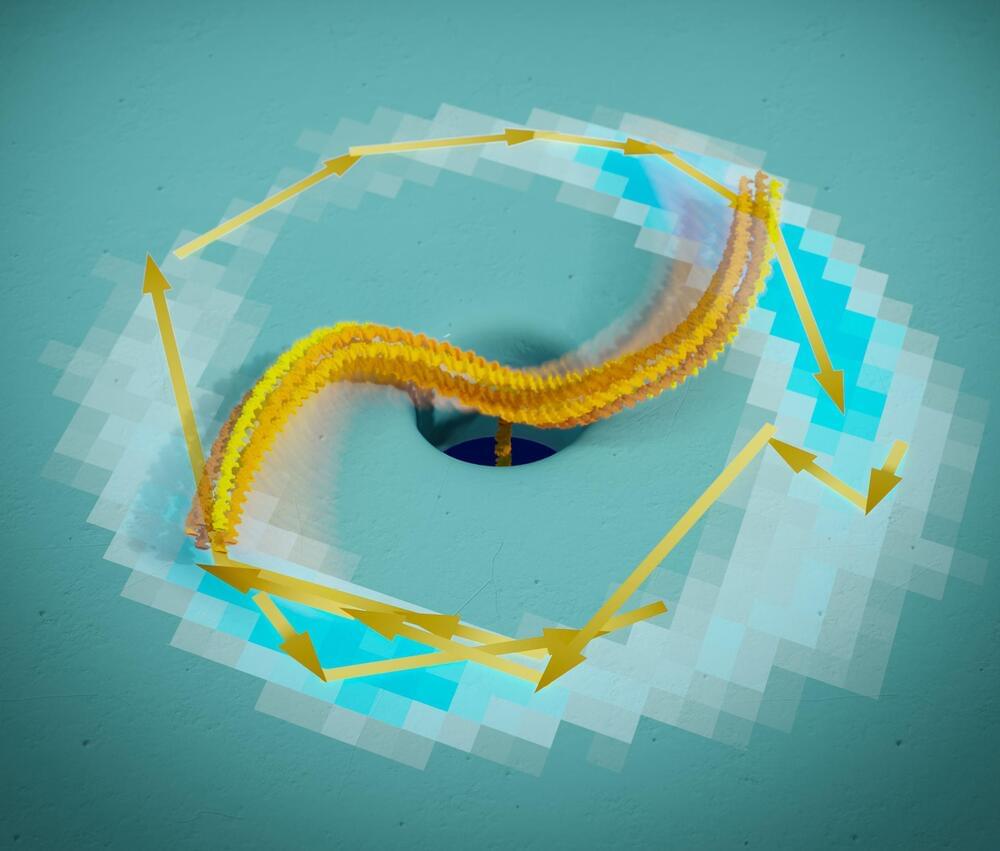Researchers from TU Delft have constructed the smallest flow-driven motors in the world. Inspired by iconic Dutch windmills and biological motor proteins, they created a self-configuring flow-driven rotor from DNA that converts energy from an electrical or salt gradient into useful mechanical work. The results open new perspectives for engineering active robotics at the nanoscale.
The article is now published in Nature Physics (“Sustained unidirectional rotation of a self-organized DNA rotor on a nanopore”).
Rotary motors have been the powerhouses of human societies for millennia: from the windmills and waterwheels across the Netherlands and the world to today’s most advanced off-shore wind turbines that drive our green-energy future.
